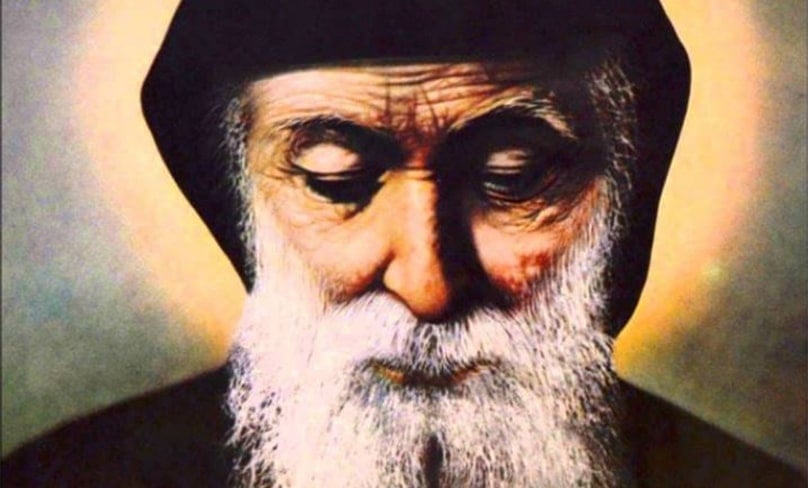
By Salwa Elias
To live in the world but not be of it is the aspiration of every saint and indeed every Christian. However, how does one achieve this without contradicting Christ?
We can learn much from our beloved St Charbel Makhlouf, whose feast day in the Catholic church is celebrated on 24 July, but who is remembered on the third Sunday in July by Maronites.
St Charbel embraced a life of monastic solitude with an emphasis on the spiritual and ascetical life of St Maroun.
He was known for his simplicity and desire to discover God’s presence in all things. He did not separate the physical and spiritual worlds, but rather used the physical world to deepen his faith and spiritual experience with God.
While this may seem difficult to do, especially in the chaotic world of the 21st century, it is not impossible with God’s help.
The saints were able to free themselves from the physical world through their passion and fervor for prayer, entering into a personal and intimate relationship with God. This is what each of us is called to do and can do if we sincerely desire Heaven.
St Charbel, a monk and hermit of the Lebanese Maronite order, reminds us of the indispensable role of prayer, hidden virtues, and penance to liberate the soul in its ascent to God.
He lived, worked, and prayed in silence, performing his priestly ministry and monastic duties with love. Just as he did, we too should perform our duties with love, whether in our workplace, with family, or generally in society.
In his life of prayer and labor combined, the Eucharist was the center of St Charbel’s life, encouraged by Scripture and the Blessed Mother.
Through prayer and penance, he offered himself as a sacrifice so that the world would return to God. This too can be our offering and even our consolation when we find ourselves struggling with daily crosses, uniting all with his Passion, for the salvation of souls.
We can start our day with prayers and Holy Mass, then continue with our duties, which may serve as a continuous prayer throughout the day. It’s these little practices, forming into habits, that will help us live simply, despite the chaos around us. St Charbel beckons us to speak to our heavenly Father often and to make prayer a priority in our lives.
Through his holy silence, St Charbel also teaches us to seek God’s presence amidst the noise of the world and to listen attentively to his gentle voice. He serves as a powerful reminder for us to pause, to find moments of silence, and to attune our hearts to the presence of God, who is real, alive, and loving. In this silence, we discover the profound wisdom and guidance that the Lord wishes to impart to us.
We can attribute many blessings to the intercession of St Charbel. One of which was the opening of the first Maronite Church in Western Australia on 9 July 2023, after years of hard work and planning. The church, which fittingly bears the name of our beloved saint, was opened in the presence of his relics, along with the relics of all the Maronite saints; St Maroun, our spiritual father; St Nehmetallah and St Rafqa; and the relics of Australia’s first saint, Mary of the Cross MacKillop.
Many continue to flock to venerate our saints and pray for their intercession, as they travel to all Maronite parishes around the country during this, the Golden Jubilee of the Maronite Eparchy of Australia. May we, through their example, and especially the example of St Charbel, draw from their love for the Lord to deepen our own love for him with each passing day.
Salwa Elias is a member of the Maronite Catholic Church and is the EWTN producer for Australia and New Zealand
